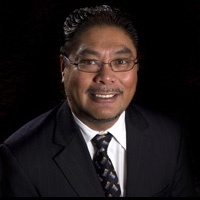 Gresham Misdemeanor Lawyers, Oregon
Gresham Misdemeanor Lawyers, Oregon
Sponsored Law Firm
-
 x
x

Click For More Info:
-
Oliveros Law Group, P.C.
9200 S.E. Sunnybrook Boulevard Suite 335 Clackamas, OR 97015» view mapCriminal Defense, Divorce & Family Law 007 Law
At Oliveros Law Group P.C, our attorneys help clients understand their rights when they have been injured due to the deliberate or careless act of another person.
800-797-7891
Not enough matches for Gresham Misdemeanor lawyer.
Below are all Gresham Criminal lawyers.
Sponsored Lawyers
1-2 of 2 matches
Divorce & Family Law, Criminal, Accident & Injury
Gregory Paul Oliveros was born and raised in the Portland area. After graduating from the Oregon College of Education in 1973, he taught in the Portland Public Schools. In 1981, he left the classroom to become an administrator with the School District. He was a specialist in the Staff Development Community Relations Office and was later an assistant to the principal of Humboldt Elementary School. Mr. Oliveros earned 2 Masters degrees in Education from Portland State University in 1981 and 1982, then went on to attend law school and graduated in 1990 at age 40.In the early part of his career, Mr. Oliveros had a sole practice. In 1996, Michael D. O'Brien was an associate to his former firm, and became his partner in 2000, now known as Oliveros & O'Brien, P.C.Mr. Oliveros has three daughters and three granddaughters. Mr. Oliveros and his wife, Gina enjoys taking short trips with his time away from the office. Mr. Oliveros is active in his church, Christ the King, and on occasion, enjoys playing a friendly game of poker.In addition to Mr. Oliveros' criminal practice, he works in the domestic relations area. The law firm of Oliveros & O'Brien has a significant practice in bankruptcy. Mr. Oliveros' interest in criminal defense work has risen over the years, and he now considers it a significant part of his practice.
(more)


 Gregory Oliveros Clackamas, OR
Gregory Oliveros Clackamas, OR Practice AreasExpertise
Practice AreasExpertise

